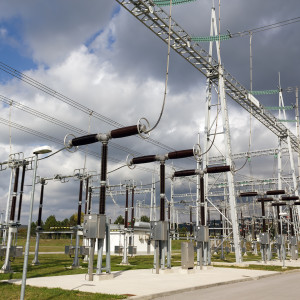Generally, a leaked first draft is of something like the latest installment of a best-selling series or a movie that might upset the North Koreans. Department of Energy reports? Less likely. Which means that when a draft copy of a DOE study on the electric grid was leaked in June, it was unexpected to say the least. The leak demonstrated the hype surrounding the grid study, which, among other things, examined the feasibility of large-scale alternative energy. On Wednesday, the final grid study was released.
“This review is something that was long overdue. The industry has experienced massive change in recent years, and government has failed to keep pace,” wrote Energy Secretary Rick Perry in a letter that accompanied the release of the report. “This report examines the evolution of markets that has occurred over the last fifteen years. Policy makers and regulators should be making decisions based on what the markets look like today, not what they looked like years ago.”
The study was commissioned by Perry in April. In his memo, Perry ordered the department to study the resilience and reliability of America’s baseload energy sources. He also specified that the writers of the report were to examine how state and federal requirements had imposed burdens on baseload power plants. In its final draft, the report presents the status of America’s energy generation and grid systems and provides policy recommendations.
The study’s main finding–that cheap natural gas and market conditions, rather than regulation, were the leading causes of baseload plant retirements–surprised few in the power sector. However, federal regulations, including the Clean Power Plan the Mercury and Air Toxic Standard rule (MATS), did force a rash of plant closures in 2015. That year marked the highest amount of retired capacity.
Closure of coal and nuclear plants, which have long lifespans, raises questions about the long-term resilience of America’s energy. As a general rule, energy experts favor a mix of generation fuels, which helps to protect against price shocks. However, today’s energy markets are much more flexible than in the past, with utility providers increasing moving away from the baseload system that relied on coal generators in favor of natural gas capacity that can be switched on and off as demand increases.
Still, this focus on a single fuel makes energy prices more prone to price and fuel supply shocks. The grid study advises that, as coal plants close, the country should work to develop an overarching strategy to improve reliability and resilience.
“Ultimately the continued closure of traditional baseload power plants calls for a comprehensive strategy for long-term reliability and resilience,” the study said
In its conclusion, the DOE presented a list of eight recommendations for policymakers. These included reforms to improve how wholesale energy is priced and to promote clean and safe energy development while minimizing barriers to economic growth and job creation. These elements echo major policy goals of the Trump administration which have already been the subject of executive orders and other Energy Department policies. When it came to specific infrastructure recommendations, what was most notable was what was absent from the proposal, namely alternative energy, though it did not go so far as to say that renewables threatened grid reliability.
“DOE and related Federal agencies should accelerate and reduce costs for the licensing, relicensing, and permitting of grid infrastructure such as nuclear, hydro, coal, advanced generation technologies, and transmission,” the report stated. For the DOE, this means reviewing the regulatory burdens caused by the permitting and citing processes, as well as encouraging other agencies, including FERC and the EPA to streamline their processes and avoid unnecessary additions to current regulations.
The grid study’s findings, like many of Perry’s policy changes as Energy Secretary, were praised by supporters of conventional energy development and criticized by environmentalists. The coal industry in particular approved of the report’s support for coal.
“We commend Secretary Perry and the Department of Energy for studying the challenges facing the electricity grid. One of the biggest challenges is how to preserve the nation’s coal fleet so it can continue supporting a reliable and resilient electricity grid,” said Paul Bailey, president and CEO of the American Coalition for Clean Coal Electricity. “We look forward to working with policymakers at the national, regional, and state levels to value the important attributes of the coal fleet.”
Meanwhile, environmentalist groups were angered by the grid study’s support for conventional fossil fuels, fearing that it foretold a bailout of coal.
“DOE’s grid study reads like a schizophrenic attempt to support outdated, uncompetitive, and highly polluting power plants,” John Moore, director of the Sustainable FERC Project at Natural Resources Defense Council, said in a statement. “DOE Secretary Perry appears determined to mold America’s transmission grid around support for fossil fuels, but the facts in his own report don’t back up that approach.”
Thus far, industry reactions have been muted. A public comment period opened with the release of the study. At this point, the DOE has not specified a date when this comment period will end.

